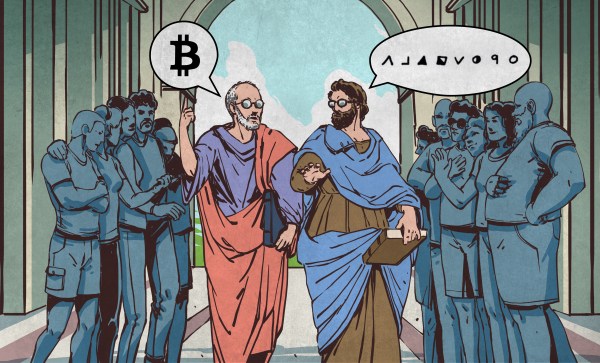Imagine you’re a general, camped outside a fortified city with your army. Your army isn’t strong enough to take the city without help. But you do have help: camped on other hills outside this city are a half dozen more generals, with their armies ready to attack. Attacking one army at a time will fail; taking this city will require at least three or four armies, and an uncoordinated attack will leave thousands dead outside the city gates. How do you coordinate an attack with the other generals? Now, how do you coordinate your attack if one of those other generals is Benedict Arnold? What happens when one of the generals is working with the enemy?
This situation is a slight rephrasing of the Byzantine Generals Problem, first presented in the ACM Transactions on Programming Languages and Systems in 1982. It’s related to the Two Generals Problem formulated a decade prior. These are the analogies we use when we talk about trust over a communications channel, how hard it is to transmit knowledge, and how to form a consensus around imperfect facts.
This problem was upended in late 2008 when Satoshi Nakamoto, a person or group of people, published a white paper on the ‘block chain’. This was the solution to double-spending in digital currency. Think of it as having a digital thing that only one person could own. As a test of this block chain technology, Bitcoin was launched at the beginning of 2009. Things got more annoying from there.
Now, blockchain is at the top of the hype cycle. Every industry is looking at blockchain tech to figure out how it will work for them. Kodak launched their own blockchain, there are proposals to use the blockchain in drones and 3D printers. Medical records could be stored on the blockchain, HIPAA be damned, and there’s a blockchain phone, for reasons. This doesn’t even cover the massive amount of speculation in Bitcoin itself; thousands of other cryptocurrencies have also sprung up, and people are losing money.
The blockchain is a confusing thing, with hashes and Merkle trees and timestamps. Everyone is left asking themselves, what does the blockchain actually do? Is there an independent body out there that will tell me what the blockchain is good for, and when I should use it? You’re in luck: NIST, the National Institute of Standards and Technology released their report on blockchain technology (PDF). Is blockchain magic? No, no it is not, and it probably shouldn’t be used for anything other than a currency.











